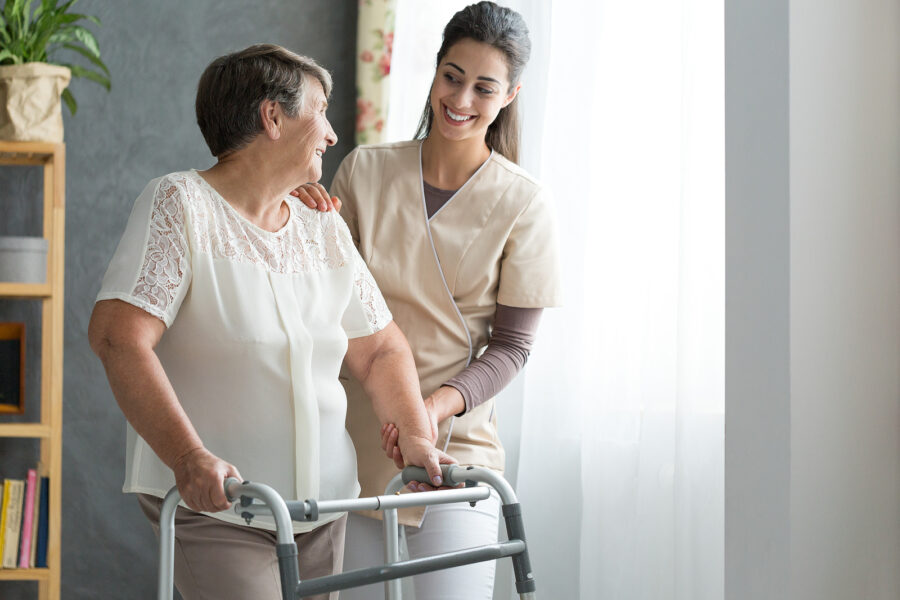December 27, 2023

As aging occurs, it becomes more and more important to take care of the body’s bones, especially since the risk of osteoporosis goes up in the older years. Osteoporosis, which is sometimes called the “silent disease,” can weaken bones and make them more likely to break. Seniors can take care of their bone health by being proactive, getting regular screenings, and learning as much as possible about the disease. With the help of the home care team, this becomes even more possible.
Osteoporosis screenings are very important for seniors because they help find bone density loss early. A dual-energy X-ray absorptiometry (DXA) scan is usually used for these checks to measure bone mass and find possible weak spots. If osteoporosis is found early, it can be treated quickly, which lowers the risk of fractures and other problems that come with severe osteoporosis.
As mentioned, people with osteoporosis have weaker bones, which makes them more likely to break. Unfortunately, the condition can start and worsen without any obvious signs or symptoms until a fracture happens, which is why the screening noted is even more important. Still, it’s essential to know about the disease to help seniors be mindful and make good choices about their bone health. Some common facts that they and their home care team should know are as follows:
The bone is a living tissue that is always changing shape. Osteoporosis throws off this balance, letting bone loss happen faster than bone growth.
Age, gender, genetics, hormone changes (especially in women who have undergone menopause), and lifestyle choices like diet and exercise can all contribute to osteoporosis.
Making changes to one’s lifestyle is essential to stopping and treating osteoporosis. Getting enough calcium and vitamin D, doing weight-bearing exercise regularly, and staying away from drugs and alcohol are all important for keeping bones healthy.
Getting adults the information they need to make smart choices about their bone health is very important. The healthcare team should teach seniors about osteoporosis by talking about risk assessment, which allows seniors to understand their own risk factors and take focused precautions like screenings.
People who are at a higher risk or who have been diagnosed with osteoporosis may talk about their medication choices. It’s very important for seniors to know what the pros and cons of any medicines they are given are.
Osteoporosis screenings are an important part of senior health care because they allow for early treatment and the prevention of fractures. Educating seniors about the disease also gives them the tools they need to make living choices that promote good bone health. Seniors can live a better life without the restrictions that osteoporosis puts on them by getting regular tests and taking an active role in their bone health. Remember that knowing something gives seniors’ the power they need to live well, and it’s never too late to put bone health first.
If you or an aging loved one are considering hiring Home Care in Sewickley, PA, please contact the caring staff at In-Home Quality Care today. Serving the Greater Pittsburgh Area since 1990! Call 412-421-5202